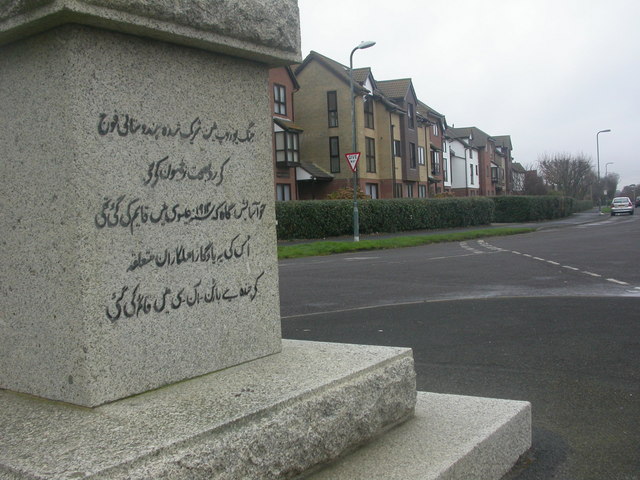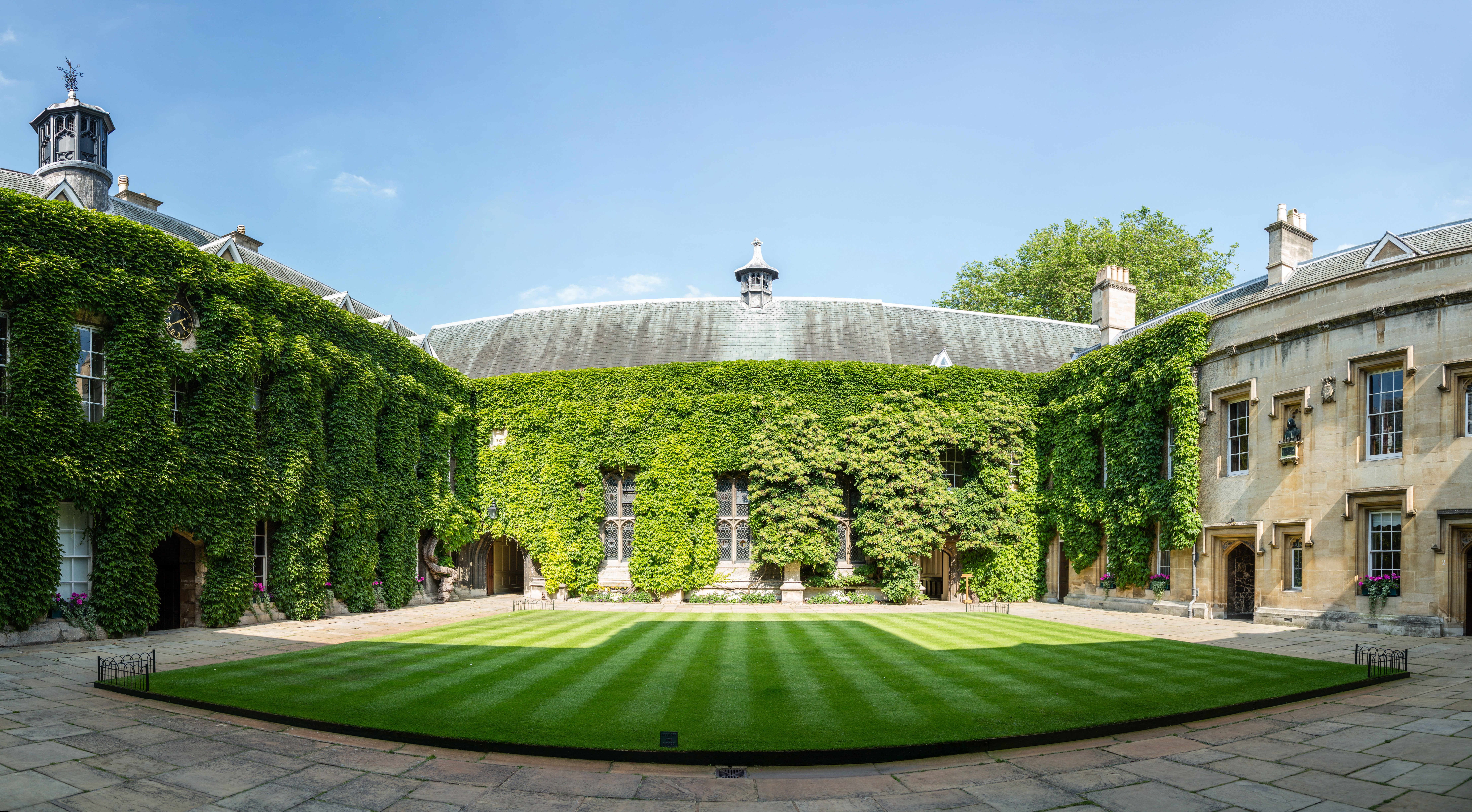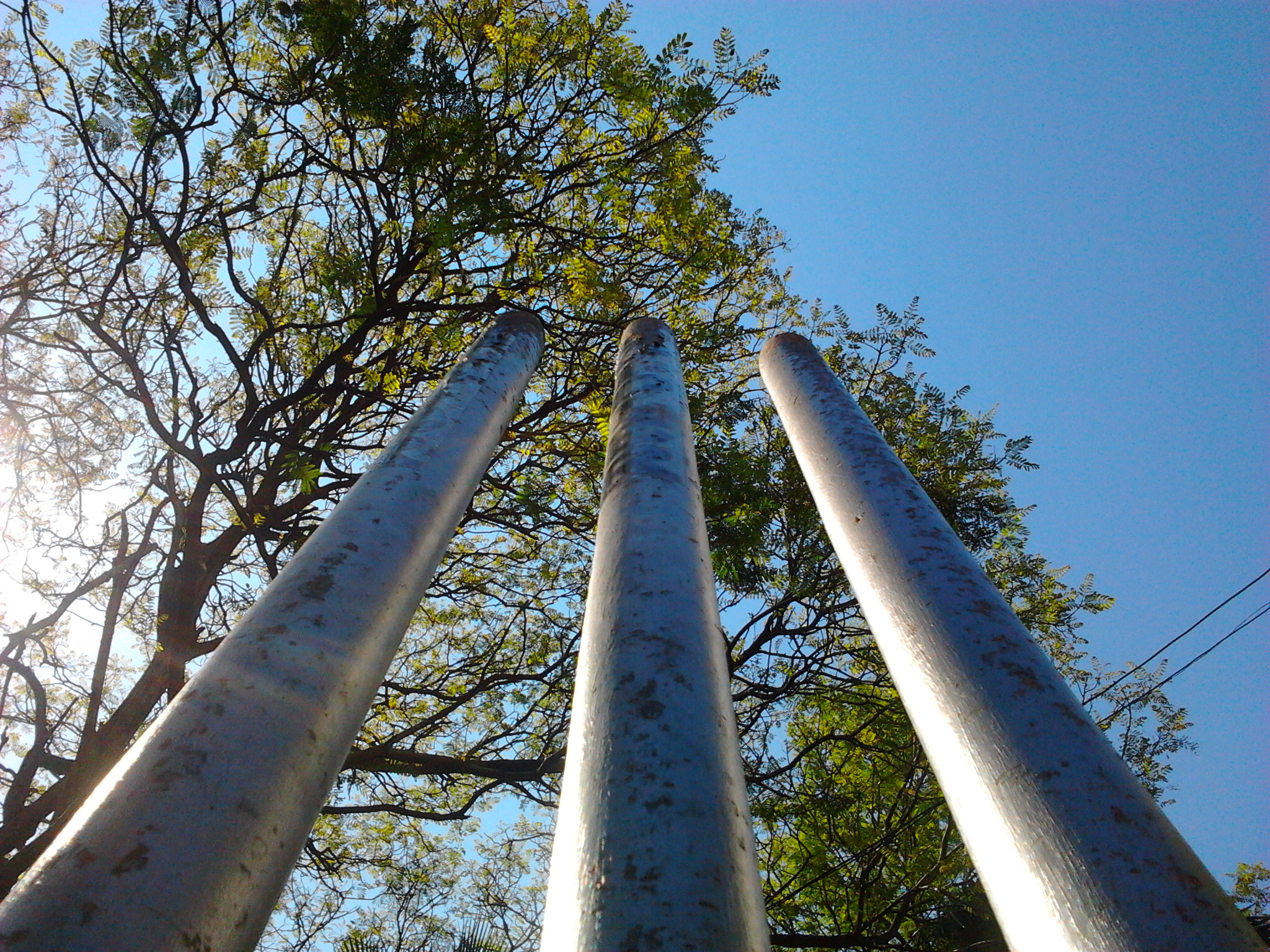|
Moray Macpherson
Moray Charles Livingstone Macpherson (4 November 1959 – 5 February 2016) was an English first-class cricketer. The son of Rorie and Shelagh Macpherson, he was born at Barton on Sea, Hampshire. He was educated firstly at Horris Hill School, before attending Winchester College. From Winchester he went up to Lincoln College, Oxford where he played first-class cricket for Oxford University on five occasions in 1980. Playing as a wicket-keeper, he scored a total of 55 runs in his five matches, with a high score of 22. Behind the stumps In cricket, the stumps are the three vertical posts that support the bails and form the wicket. '' Stumping'' or ''being stumped'' is a method of dismissing a batsman. The umpire ''calling stumps'' means the play is over for the day. Part of ... he took eight catches and made a single stumping. He died in February 2016 at the Michael Sobell Hospice in Northwood, following a battle with cancer. His uncle, Hubert Webb, was also a first-class ... [...More Info...] [...Related Items...] OR: [Wikipedia] [Google] [Baidu] |
Barton On Sea
Barton on Sea (often hyphenated as Barton-on-Sea) is a cliff-top village in Hampshire, England with close connections, physical, governmental and commercial, to the inland town, New Milton which is its civil parish to the north. As a settlement, Barton has a history dating back to Anglo-Saxon times. Its housing, few shops and numerous hospitality venues were largely built in the 20th century. Barton is notable for the many fossils to be found in the Barton geological beds in the cliffs, as well as for the significant sea defences built to guard the cliffs against coastal erosion. Barton on Sea is a very popular retirement location. Approximately 36% of the population are retired. The population of Barton in the 2001 census was 6,849. History The area of Barton has been populated since prehistoric times. A number of Bronze Age funerary urns were uncovered in Barton during the early 20th century, although most of them have been lost or destroyed. While Barton is a common Engli ... [...More Info...] [...Related Items...] OR: [Wikipedia] [Google] [Baidu] |
Lincoln College, Oxford
Lincoln College (formally, The College of the Blessed Mary and All Saints, Lincoln) is one of the constituent colleges of the University of Oxford, situated on Turl Street in central Oxford. Lincoln was founded in 1427 by Richard Fleming, the then Bishop of Lincoln. Notable alumni include the physician John Radcliffe, the founder of Methodism John Wesley, antibiotics scientists Howard Florey, Edward Abraham, and Norman Heatley, writers Theodor Seuss Geisel (Dr. Seuss) and David John Moore Cornwell (John le Carré), the journalist Rachel Maddow, and the current British Prime Minister Rishi Sunak. Mensa was founded at Lincoln College in 1946. Lincoln College has one of the oldest working medieval kitchens in the UK. History Founding Richard Fleming, the then Bishop of Lincoln, founded the College in order to combat the Lollard teachings of John Wyclif. He intended it to be "a little college of true students of theology who would defend the mysteries of Scripture against t ... [...More Info...] [...Related Items...] OR: [Wikipedia] [Google] [Baidu] |
Oxford University Cricketers
Oxford () is a city in England. It is the county town and only city of Oxfordshire. In 2020, its population was estimated at 151,584. It is north-west of London, south-east of Birmingham and north-east of Bristol. The city is home to the University of Oxford, the oldest university in the English-speaking world; it has buildings in every style of English architecture since late Anglo-Saxon. Oxford's industries include motor manufacturing, education, publishing, information technology and science. History The history of Oxford in England dates back to its original settlement in the Saxon period. Originally of strategic significance due to its controlling location on the upper reaches of the River Thames at its junction with the River Cherwell, the town grew in national importance during the early Norman period, and in the late 12th century became home to the fledgling University of Oxford. The city was besieged during The Anarchy in 1142. The university rose to dominat ... [...More Info...] [...Related Items...] OR: [Wikipedia] [Google] [Baidu] |
English Cricketers
English usually refers to: * English language * English people English may also refer to: Peoples, culture, and language * ''English'', an adjective for something of, from, or related to England ** English national identity, an identity and common culture ** English language in England, a variant of the English language spoken in England * English languages (other) * English studies, the study of English language and literature * ''English'', an Amish term for non-Amish, regardless of ethnicity Individuals * English (surname), a list of notable people with the surname ''English'' * People with the given name ** English McConnell (1882–1928), Irish footballer ** English Fisher (1928–2011), American boxing coach ** English Gardner (b. 1992), American track and field sprinter Places United States * English, Indiana, a town * English, Kentucky, an unincorporated community * English, Brazoria County, Texas, an unincorporated community * Engl ... [...More Info...] [...Related Items...] OR: [Wikipedia] [Google] [Baidu] |
Alumni Of Lincoln College, Oxford
Alumni (singular: alumnus (masculine) or alumna (feminine)) are former students of a school, college, or university who have either attended or graduated in some fashion from the institution. The feminine plural alumnae is sometimes used for groups of women. The word is Latin and means "one who is being (or has been) nourished". The term is not synonymous with "graduate"; one can be an alumnus without graduating (Burt Reynolds, alumnus but not graduate of Florida State, is an example). The term is sometimes used to refer to a former employee or member of an organization, contributor, or inmate. Etymology The Latin noun ''alumnus'' means "foster son" or "pupil". It is derived from PIE ''*h₂el-'' (grow, nourish), and it is a variant of the Latin verb ''alere'' "to nourish".Merriam-Webster: alumnus .. Separate, but from the s ... [...More Info...] [...Related Items...] OR: [Wikipedia] [Google] [Baidu] |
People Educated At Winchester College
A person ( : people) is a being that has certain capacities or attributes such as reason, morality, consciousness or self-consciousness, and being a part of a culturally established form of social relations such as kinship, ownership of property, or legal responsibility. The defining features of personhood and, consequently, what makes a person count as a person, differ widely among cultures and contexts. In addition to the question of personhood, of what makes a being count as a person to begin with, there are further questions about personal identity and self: both about what makes any particular person that particular person instead of another, and about what makes a person at one time the same person as they were or will be at another time despite any intervening changes. The plural form "people" is often used to refer to an entire nation or ethnic group (as in "a people"), and this was the original meaning of the word; it subsequently acquired its use as a plural form of per ... [...More Info...] [...Related Items...] OR: [Wikipedia] [Google] [Baidu] |
People From New Forest District
A person ( : people) is a being that has certain capacities or attributes such as reason, morality, consciousness or self-consciousness, and being a part of a culturally established form of social relations such as kinship, ownership of property, or legal responsibility. The defining features of personhood and, consequently, what makes a person count as a person, differ widely among cultures and contexts. In addition to the question of personhood, of what makes a being count as a person to begin with, there are further questions about personal identity and self: both about what makes any particular person that particular person instead of another, and about what makes a person at one time the same person as they were or will be at another time despite any intervening changes. The plural form "people" is often used to refer to an entire nation or ethnic group (as in "a people"), and this was the original meaning of the word; it subsequently acquired its use as a plural form of ... [...More Info...] [...Related Items...] OR: [Wikipedia] [Google] [Baidu] |
2016 Deaths
This is a list of deaths of notable people, organised by year. New deaths articles are added to their respective month (e.g., Deaths in ) and then linked here. 2022 2021 2020 2019 2018 2017 2016 2015 2014 2013 2012 2011 2010 2009 2008 2007 2006 2005 2004 2003 2002 2001 2000 1999 1998 1997 1996 1995 1994 1993 1992 1991 1990 1989 1988 1987 See also * Lists of deaths by day The following pages, corresponding to the Gregorian calendar, list the historical events, births, deaths, and holidays and observances of the specified day of the year: Footnotes See also * Leap year * List of calendars * List of non-standard ... * Deaths by year {{DEFAULTSORT:deaths by year ... [...More Info...] [...Related Items...] OR: [Wikipedia] [Google] [Baidu] |
1959 Births
Events January * January 1 - Cuba: Fulgencio Batista flees Havana when the forces of Fidel Castro advance. * January 2 - Lunar probe Luna 1 was the first man-made object to attain escape velocity from Earth. It reached the vicinity of Earth's Moon, and was also the first spacecraft to be placed in heliocentric orbit. * January 3 ** The three southernmost atolls of the Maldive archipelago ( Addu Atoll, Huvadhu Atoll and Fuvahmulah island) declare independence. ** Alaska is admitted as the 49th U.S. state. * January 4 ** In Cuba, rebel troops led by Che Guevara and Camilo Cienfuegos enter the city of Havana. ** Léopoldville riots: At least 49 people are killed during clashes between the police and participants of a meeting of the ABAKO Party in Léopoldville in the Belgian Congo. * January 6 ** Fidel Castro arrives in Havana. ** The International Maritime Organization is inaugurated. * January 7 – The United States recognizes the new Cuban government of F ... [...More Info...] [...Related Items...] OR: [Wikipedia] [Google] [Baidu] |
Stumps
In cricket, the stumps are the three vertical posts that support the bails and form the wicket. '' Stumping'' or ''being stumped'' is a method of dismissing a batsman. The umpire ''calling stumps'' means the play is over for the day. Part of the wicket The stumps are three vertical posts which support two bails. The stumps and bails are usually made of wood, most commonly ash, and together form a wicket at each end of the pitch. The overall width of each wicket is 9 inches (22.9 cm). Each stump is 28 inches (71.1 cm) tall with maximum and minimum diameters of 1 inches (3.81 cm) and 1 inches (3.49 cm). They have a spike at one end for inserting into the ground, and the other end has a U-shaped 'through groove' to provide a resting place for the bails. In junior cricket the items have lesser dimensions. Each stump is referred to by a specific name: * Off stump is the stump on the off side of the wicket (the same side as the batsman's bat). * Mid ... [...More Info...] [...Related Items...] OR: [Wikipedia] [Google] [Baidu] |
Wicket-keeper
The wicket-keeper in the sport of cricket is the player on the fielding side who stands behind the wicket or stumps being watchful of the batsman and ready to take a catch, stump the batsman out and run out a batsman when occasion arises. The wicket-keeper is the only member of the fielding side permitted to wear gloves and external leg guards. The role of the keeper is governed by Law 27 of the Laws of Cricket. Stance Initially, during the bowling of the ball the wicket-keeper crouches in a full squatting position but partly stands up as the ball is received. Australian wicket-keeper Sammy Carter (1878 to 1948) was the first to squat on his haunches rather than bend over from the waist (stooping). Purposes The keeper's major function is to stop deliveries that pass the batsman (in order to prevent runs being scored as 'byes'), but he can also attempt to dismiss the batsman in various ways: * The most common dismissal effected by the keeper is for him to '' catch'' a ... [...More Info...] [...Related Items...] OR: [Wikipedia] [Google] [Baidu] |
First-class Cricket
First-class cricket, along with List A cricket and Twenty20 cricket, is one of the highest-standard forms of cricket. A first-class match is one of three or more days' scheduled duration between two sides of eleven players each and is officially adjudged to be worthy of the status by virtue of the standard of the competing teams. Matches must allow for the teams to play two innings each, although in practice a team might play only one innings or none at all. The etymology of "first-class cricket" is unknown, but it was used loosely before it acquired official status in 1895, following a meeting of leading English clubs. At a meeting of the Imperial Cricket Conference (ICC) in 1947, it was formally defined on a global basis. A significant omission of the ICC ruling was any attempt to define first-class cricket retrospectively. That has left historians, and especially statisticians, with the problem of how to categorise earlier matches, especially those played in Great Britain be ... [...More Info...] [...Related Items...] OR: [Wikipedia] [Google] [Baidu] |




_1938.jpg)

